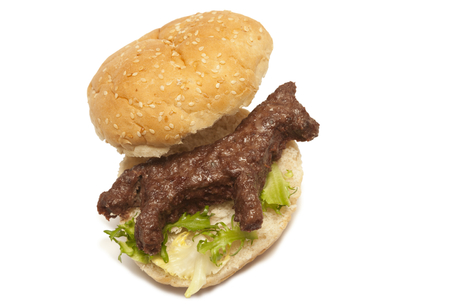Harder than ever to keep your dirty little secrets under wraps

Thinking of substituting one ingredient for another on the sly? Maybe you should think again. The days when no one could tell if it was horse meat or beef in that burger are well and truly over.
In the US, Clear Labs investigated 258 burger products, including minced meat, frozen patties, fast-food burger products and veggie burger products. The results were both revealing and revolting, with 13.6% showing problems with ingredient substitutions, hygiene or contamination:
- 4.3% of samples contained traces of pathogenic DNA
- Rat DNA was found in three products
- Human DNA was discovered in one frozen vegetarian burger
- 6% of samples revealed substitutions, with products such beef, chicken, turkey and pork in burgers that were not supposed to contain these ingredients
- 15% of vegetarian products were missing at least one listed ingredient
- Almost half of the samples contained more calories than reported on labels or in menus
According to the University of Georgia’s Dr Michael Doyle, these results are not as shocking as they first appear, as molecular testing cannot differentiate between live and dead pathogens. Also, cooking will usually kill most pathogens and dead pathogens, while not pleasant to contemplate, are not a health risk.
It also seems that human and rat DNA are actually pretty common finds in foods.
“When there is a food handler involved, you’re likely to find some form of human DNA,” Doyle said in a statement on the findings. “The FDA has set allowable limits for rat pellets in some food ingredients, such as wheat, because it’s impossible to remove all traces of rat DNA. It sounds gross, but you have to put that in perspective.”
A larger problem is the deliberate substitutions and omissions in both meat and vegetable options. Inaccurate nutritional information went hand in hand with these substitutions.
The fast-food industry products earned top marks when it came to hygiene, but 38 of the 47 fast-food burgers analysed had more calories than reported on fast-food menus. Twelve of these had caloric values that were more than 100 calories greater than stated on the menu.
While all of this information is undoubtedly unnerving for consumers, it should also stand as a warning to food processors and manufacturers. The technology now exists that makes uncovering your dirty little secrets straightforward.
Smart optical sensor detects ripeness for a quality drop
Queen Mary University of London researchers are developing a handheld, AI-powered grape ripeness...
Lighting up wine spoilage in real time with novel biosensor
A biosensor that glows when acetic acid is detected has been built by researchers to help...
Novel food processing technologies retain more nutrients in food
The potential of a range of modern techniques to improve the nutritional profiles of grain-,...










